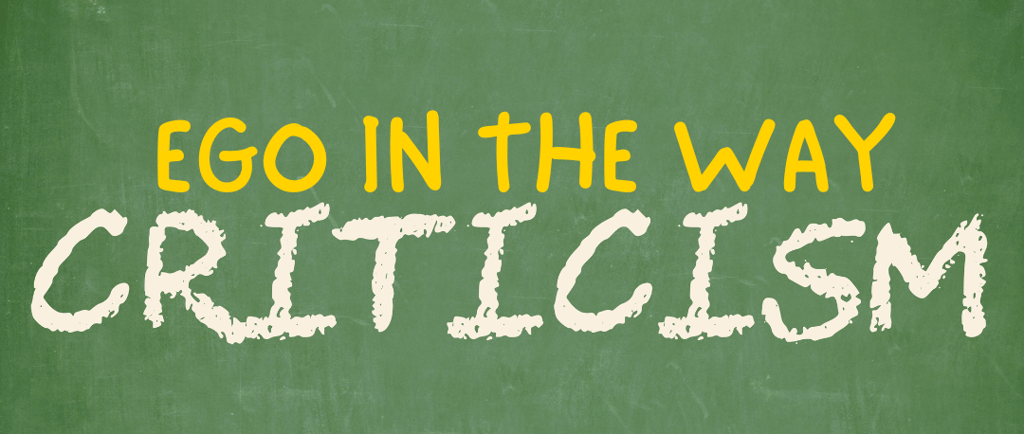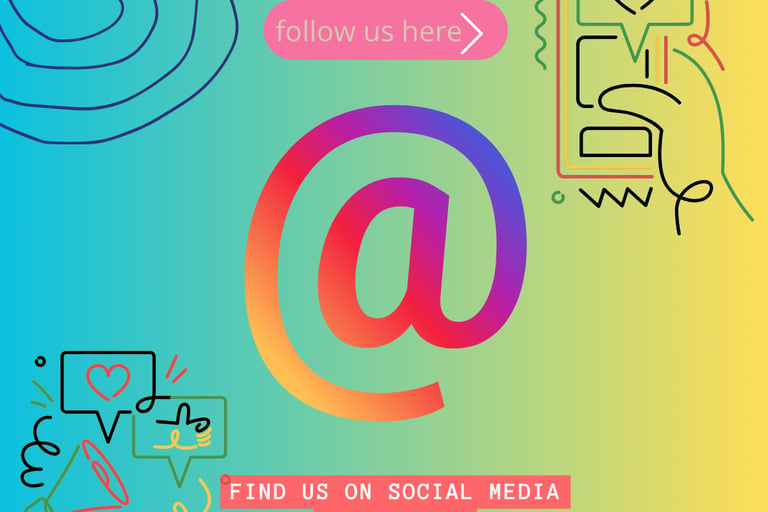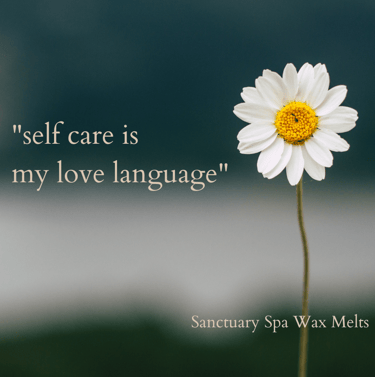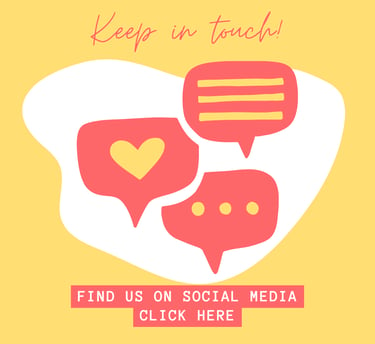Free delivery on orders over £50
Turn Criticism into Fuel for Personal Growth
How to turn criticism into fuel for personal growth: Learn practical strategies to manage ego, handle criticism constructively, and foster self improvement.
8/30/20247 min read


Ego management transforms
criticism into growth
We’ve all been there, receiving criticism that hits a little too close to home.
Whether it’s from a partner, a colleague, or even from within, those moments can leave us feeling defensive, vulnerable, and questioning our self worth.
But what if, instead of letting these emotions take over, we could learn to defeat them, using criticism as a powerful tool for personal growth?
Key lessons:
Ego and personal growth
The role of ego in our lives
Why emotions take over
Practical steps to manage your emotions
Reducing ego's impact
Turning criticism into growth
FAQs- Turn criticism into fuel for personal growth
blog / turn criticism into fuel for personal growth
Ego and Personal Growth
I wrote this article after an episode of my own inadequacies because I always want to grow and get better and become the best version of myself.
This morning, I faced a small but frustrating challenge when the chain on my bike fell off. My partner had shown me how to fix it before, so I took a deep breath and managed to get it back on by myself.
Later in the day, though, we ran into a tougher issue creating an activity to do with social media and I simply couldn’t grasp it, despite my partner's efforts to help me grasp it better, I couldn’t shake the feeling of inadequacy.
As we talked more, he mentioned that my ego might be getting in the way. That made me stop and think about where this ego comes from and how I can manage it to avoid unnecessary stress or conflict.
This got me looking into ways to understand my ego better and improve myself. I’m sharing what I found because if it helps even one person feel better, it’ll be worth it.
The Role of Ego in Our Lives
The role of your ego is to be the manager of your mind. It helps us make decisions, interact with others, and keep our actions in line with what’s acceptable in society.
Think of it as the voice in our head that balances what we want to do, with what we should do. It helps us to navigate everyday life. It's essentially our sense of self, the part that defines who we are, what we value, and how we see our own worth.
A healthy ego can help us feel confident and assertive, but it can also cause issues when it becomes too rigid or defensive.
This often happens in situations that challenge our self perception. For instance, when we’re struggling to grasp something new, like the social media content I was working on, my ego might react negatively because it feels threatened. This reaction is common.
The ego is shaped by our past experiences, upbringing, and the messages we’ve internalised over time. If you’ve always valued competence and capability, any situation that challenges these traits can feel like a direct hit to our self worth, leading to frustration, defensiveness, or even anger.
Why Emotions Take Over
Sometimes, strong emotions, whether it’s anger, frustration, or tears ,seem to come out of nowhere. This happens because certain situations act as triggers, tapping into deeper vulnerabilities or past experiences.
It wasn’t until recently that I was able to break this down so it made sense to me. Even when our rational mind knows the criticism is meant to be helpful, our emotions can still flare up. This is often because the criticism touches on something personal, like a fear of inadequacy or a past failure.
Try being a woman just for 5 minutes and see how many critiques you get based on societal standards and expectations. Now I’m no walk in the park, but I do know that women can sometimes feel as though they are constantly under attack.
Practical Steps to Manage Your Emotions
If you find yourself reacting strongly to criticism, there are a few strategies we can use to manage your emotions more effectively:
Identify Your Triggers: Start by recognising the situations or comments that tend to set off strong emotional reactions. Understanding what triggers you, is the first step to managing your response.
Pause and Breathe: Review the commentator, is this someone you trust? Do you value their opinion?
Are they being objective and do they mean well?By taking a moment to step back and review what is being said and why it's being said, gives you time to process the information.
Reframe the Criticism: Instead of seeing criticism as a personal attack, try to view it as an opportunity to learn and grow. Ask yourself, “What can I learn from this? How can this help me improve?”
This technique is very powerful and once you’ve got your head around it. Personal growth is exponential.
Practice Self Compassion: It’s OK to not be OK. Gone are the days when you had to be Wonder Woman or Superman. It’s OK to have a moment, but keep it as that, a moment. Dwelling on the past, can be more detrimental, than holding a gun to your head.
Acknowledge those feelings without judging yourself. Everyone has areas they need to improve, and this doesn’t diminish your overall worth.Communicate Openly: If criticism is a regular part of your interactions with someone, like a partner, it might help to have an open conversation about how it affects you. This can lead to more mindful and constructive communication.
Also it gives both parties an opportunity to understand each other's viewpoint, where a slight adjustment by both parties enables open communication and constructive help along the way.
Reflect Afterwards: Take time to reflect on what happened. What triggered your reaction? How did you respond? What could you do differently next time? This reflection can help you build resilience and better manage your emotions in the future.
No one says criticism doesn’t impact your confidence but if you can use it to fuel your growth. Your next version of self will be much better than yesterday and that’s all you can ask of yourself.
Reducing Ego’s Impact
Over time, using these strategies can help reduce the impact of ego on your emotional responses.
By cultivating self awareness, embracing a growth mindset, and practicing self compassion, you’ll find it easier to handle criticism constructively, rather than letting it trigger a defensive or emotional reaction.
Turning Criticism into Growth
Criticism, especially when it’s constructive and well meaning, is a part of life, whether it comes from a partner, colleague, or even yourself. While it’s natural to feel a range of emotions in response, these feelings don’t have to control how you react.
By understanding where these emotions come from and developing strategies to manage them, you can turn challenges into opportunities for personal growth.
It’s okay to feel vulnerable or upset, but with time and practice, we can learn to handle criticism with more ease and less emotional turmoil.
This can lead to stronger relationships, better communication, and a more resilient sense of self.
Frequently asked questions
How do you turn criticism into motivation?
Turning criticism into motivation means shifting your mindset. Instead of viewing it as an attack, see it as an opportunity to learn and improve.
Take a small step backwards, consider the feedback objectively, and ask yourself, “What can I take from this to grow?”
It helps to focus on the constructive aspects and not let emotions take over.
Everyone has room for improvement, and criticism can be a helpful tool to push you toward becoming a better version of yourself.
With practice, you'll find it easier to use feedback as fuel for progress rather than letting it bring you down.
Why is criticism healthy?
Criticism is healthy because it helps us see things from a different perspective and spot areas we might not notice on our own.
It pushes us out of our comfort zone, encouraging growth and self improvement. When taken constructively, it helps us refine our skills, strengthen our relationships, and become more resilient.
Criticism also fosters open communication, allowing us to learn from others and adapt in ways that benefit us in the long run.
While it can be uncomfortable, it’s an essential part of personal and professional development.
Does criticism motivate people?
Criticism can definitely motivate people, but it depends on how it's delivered and how it's received.
Constructive criticism, when given thoughtfully, can inspire someone to push harder, improve, and reach new goals. It highlights areas where growth is possible, sparking a desire to do better.
On the other hand, overly harsh or negative criticism can have the opposite effect, discouraging or demotivating people.
When approached with a positive mindset, criticism can be a powerful tool for motivation and self improvement.
Is criticism good for mental health?
Criticism can be good for mental health when approached in a healthy way.
Constructive feedback helps you grow, gain self-awareness, and build resilience, which ultimately strengthens your sense of self.
It teaches you to handle setbacks with a growth mindset, rather than letting negative emotions take over.
While it can feel uncomfortable at first, learning to accept criticism without taking it personally can boost your confidence and emotional intelligence.
The key is to see it as an opportunity to improve, rather than as a personal attack. This shift in perspective can contribute to better mental well being.








